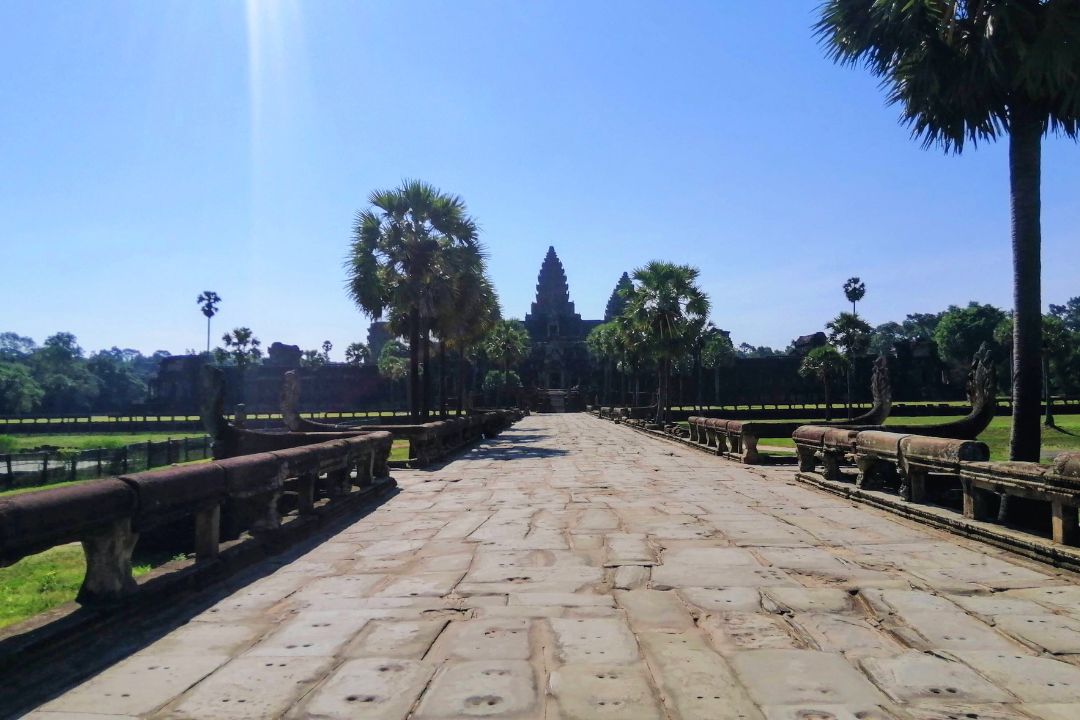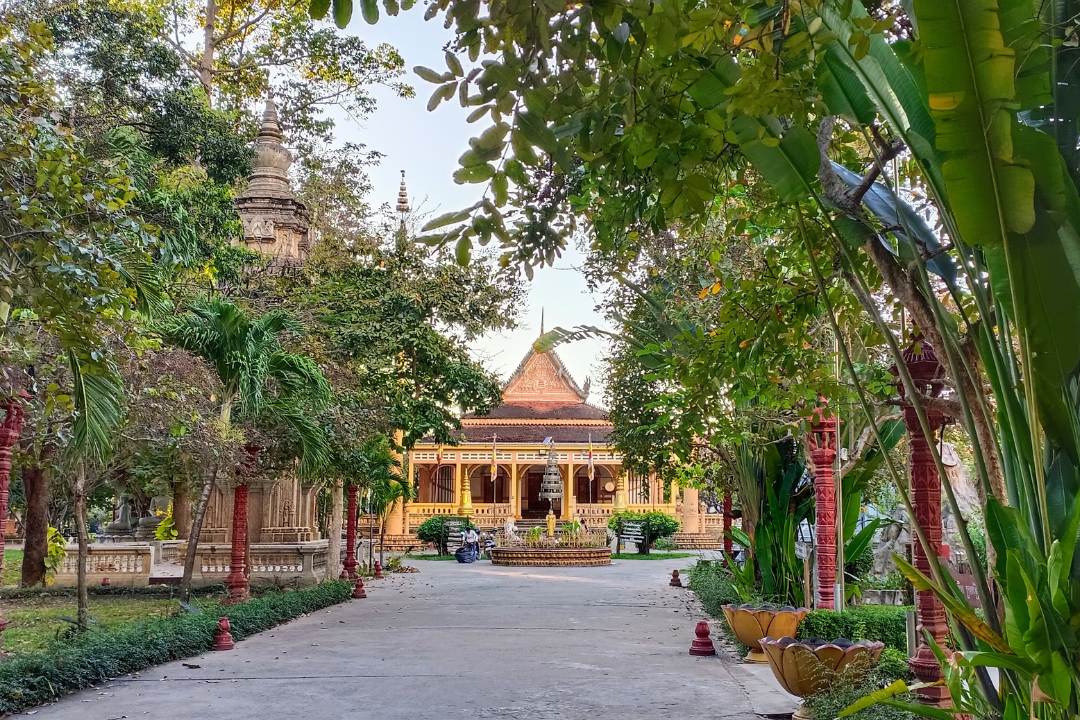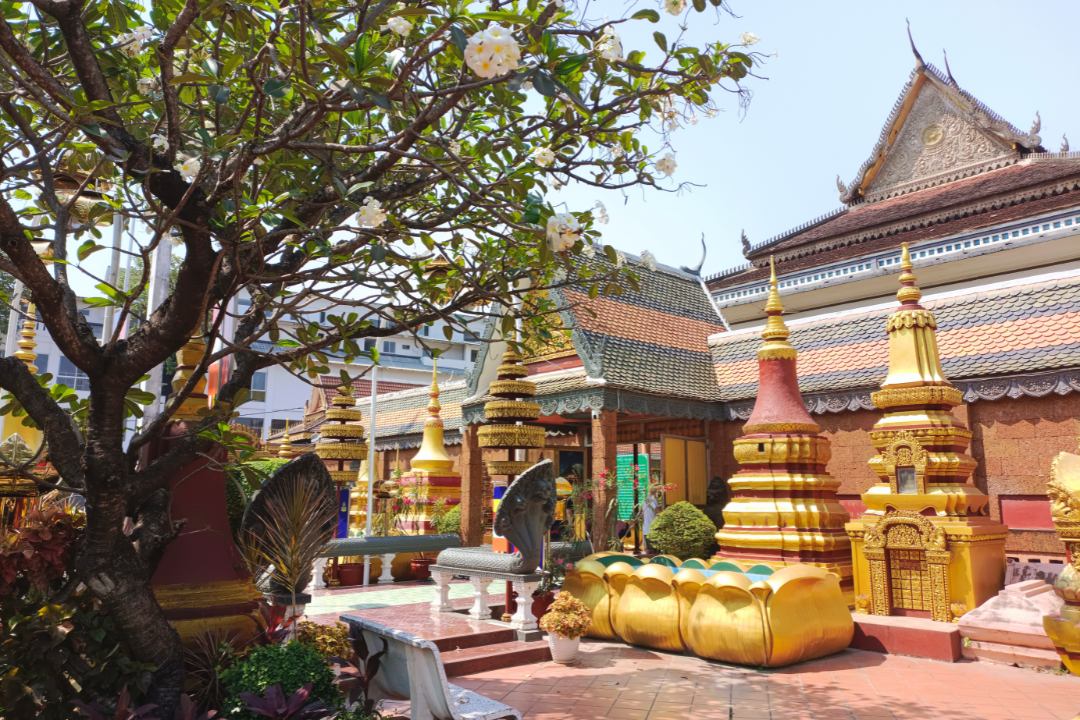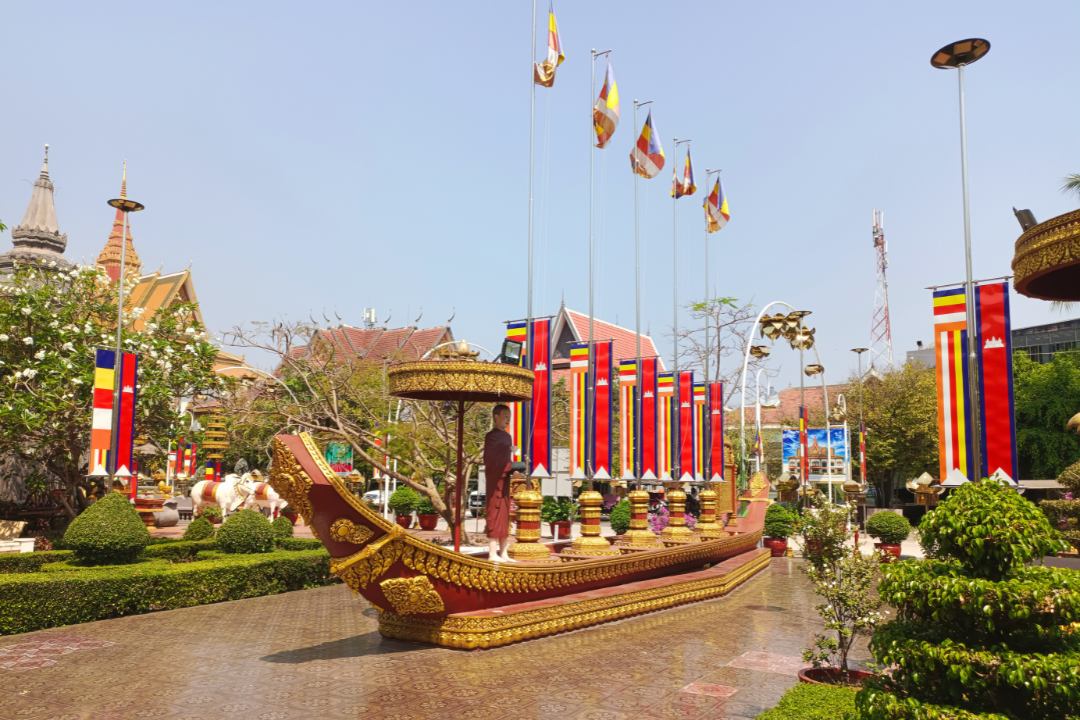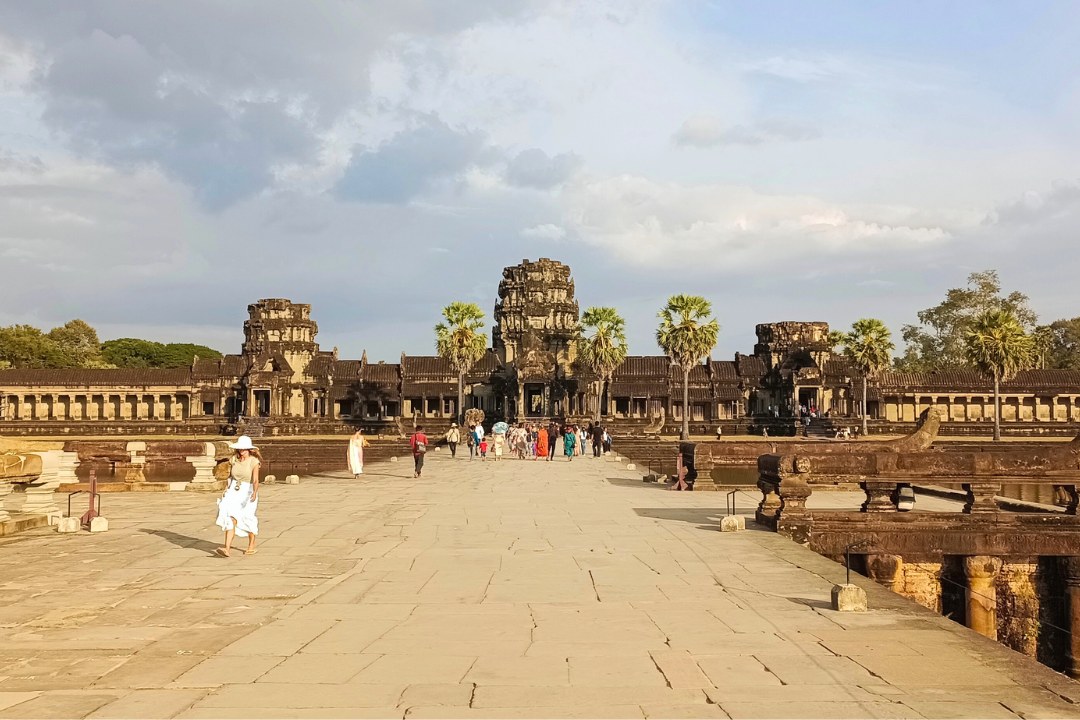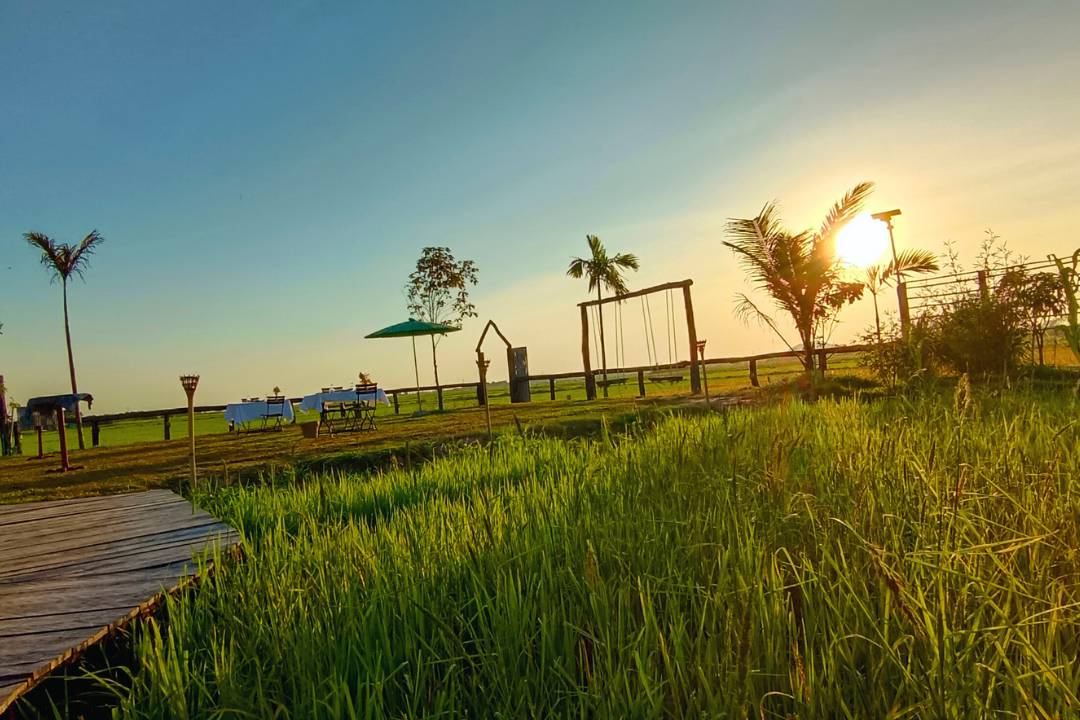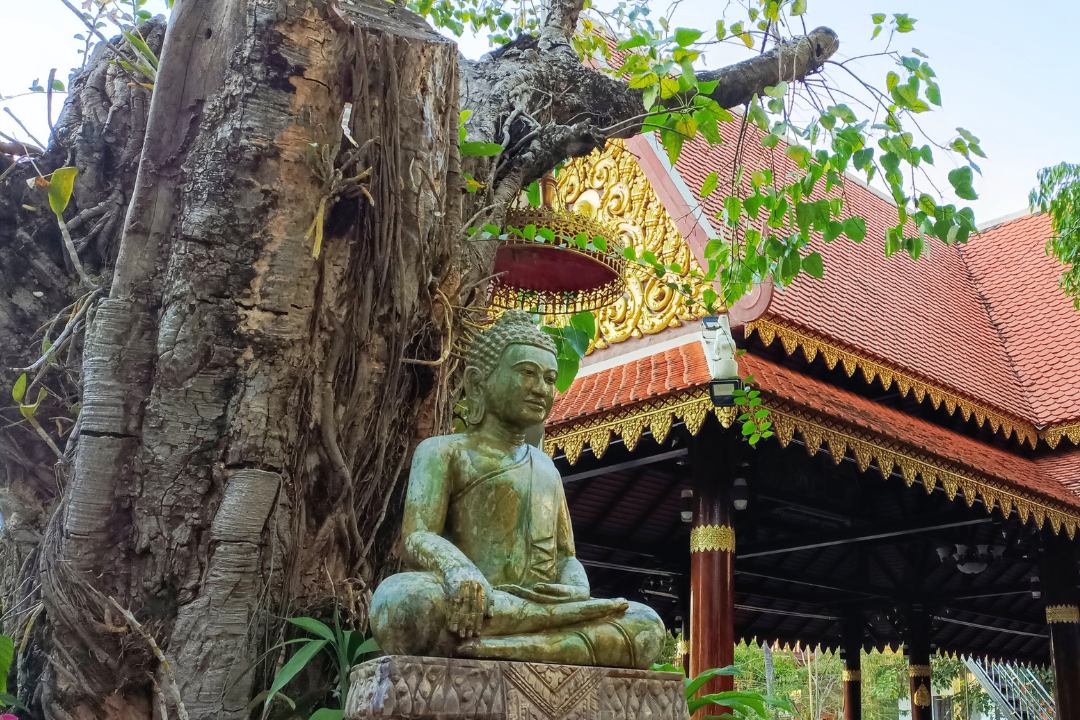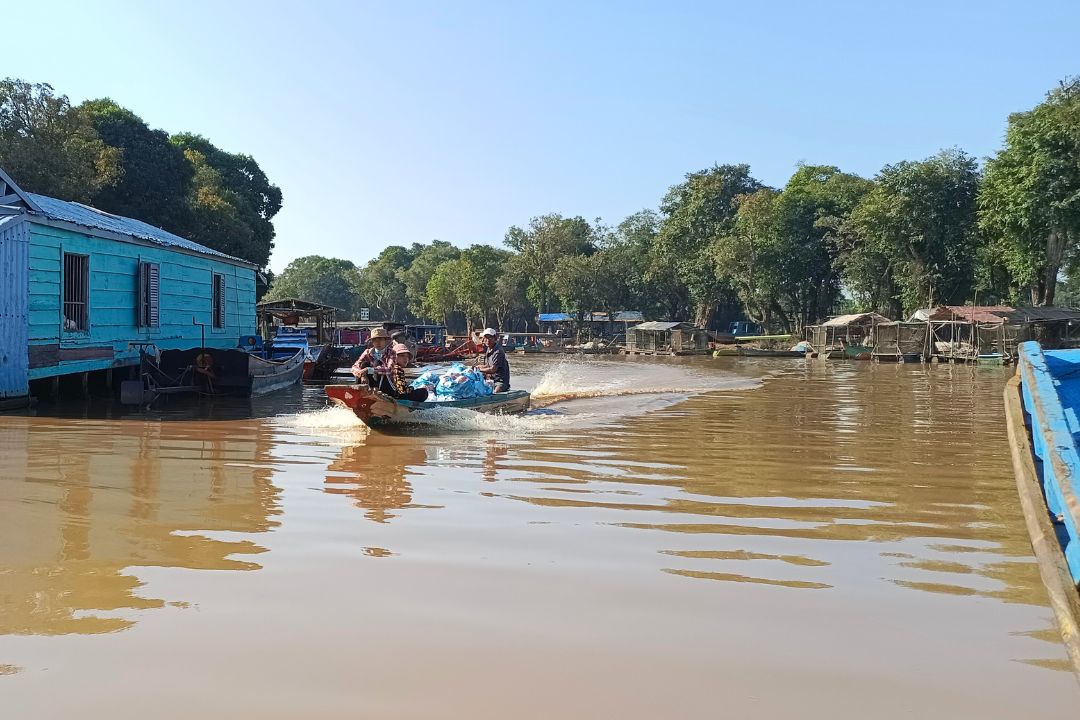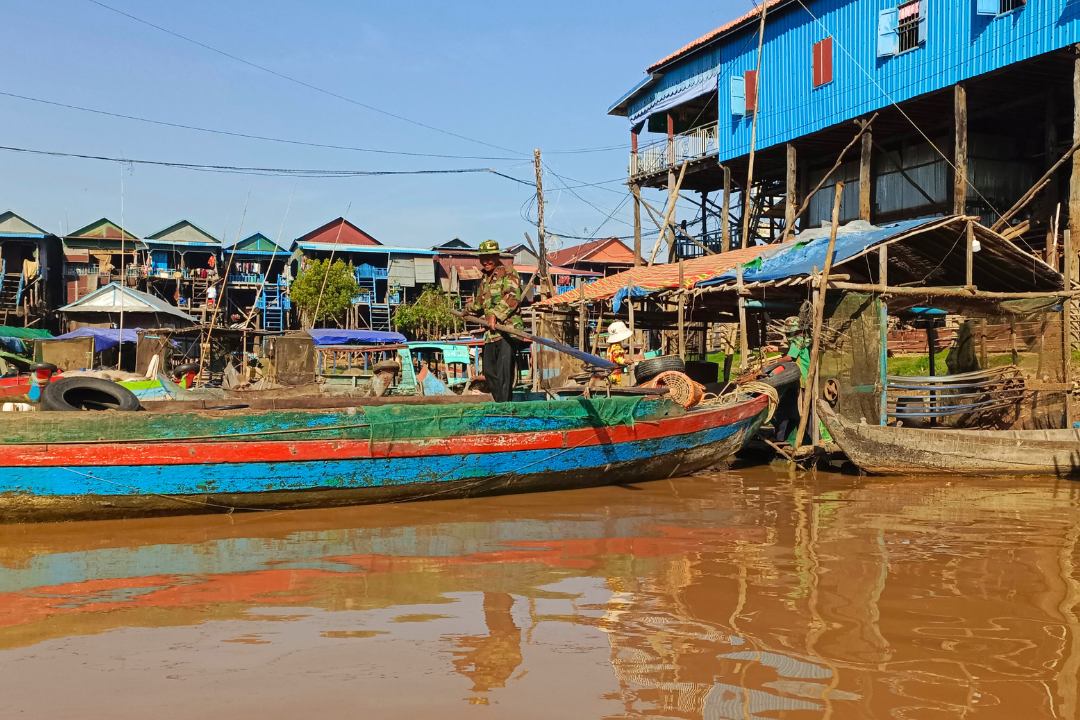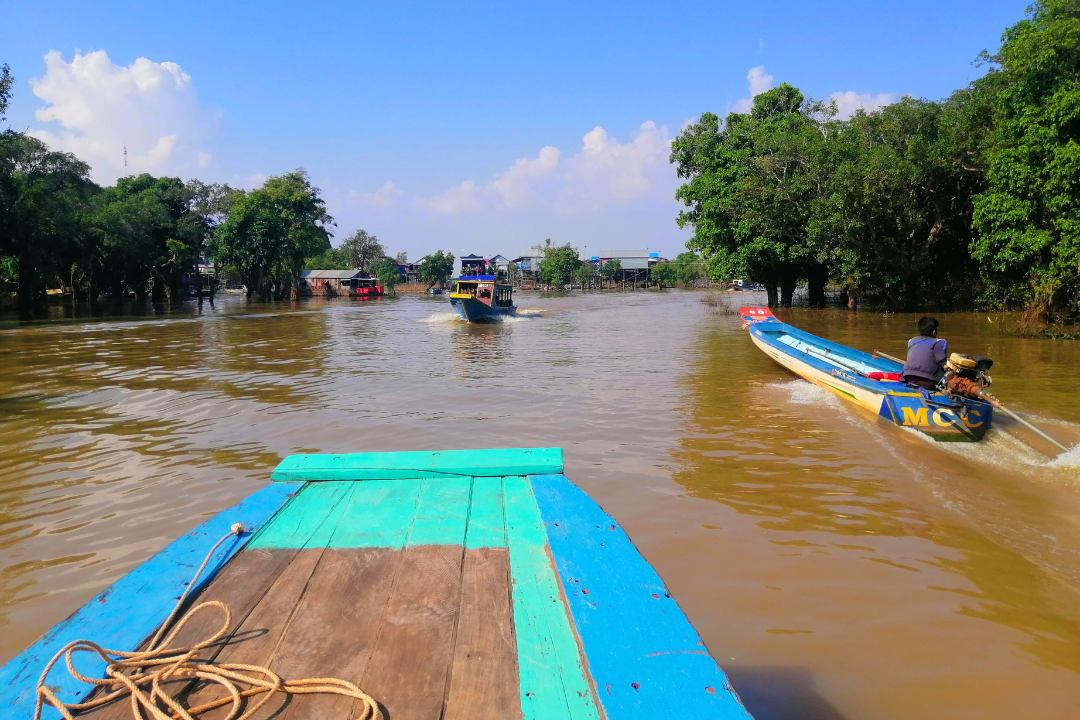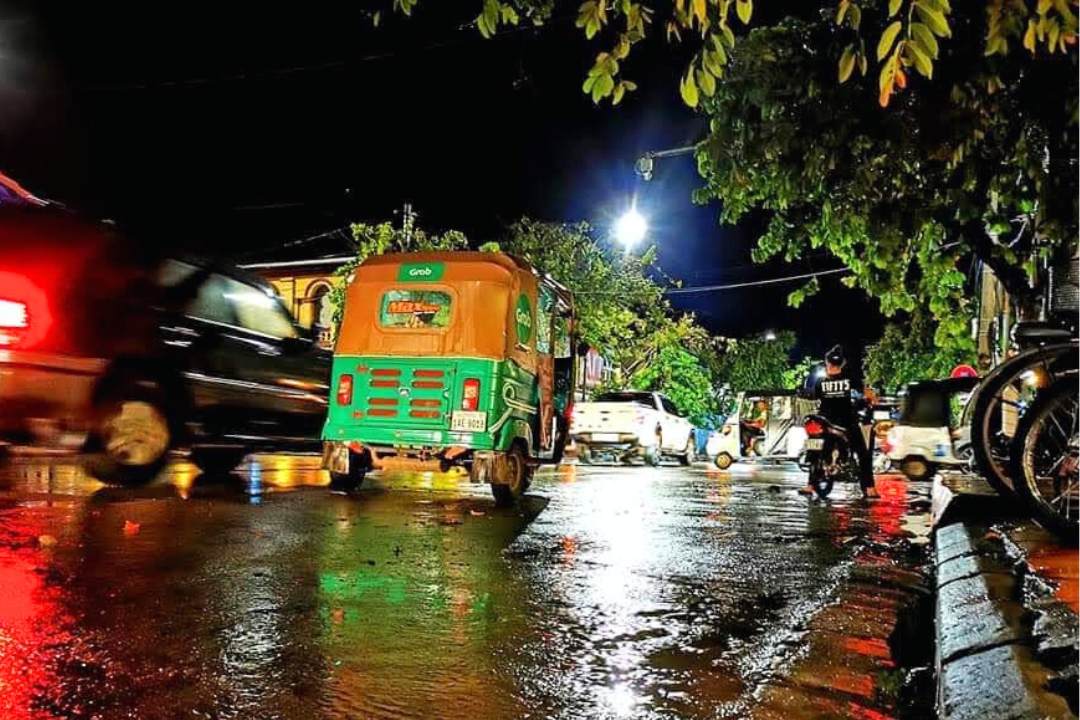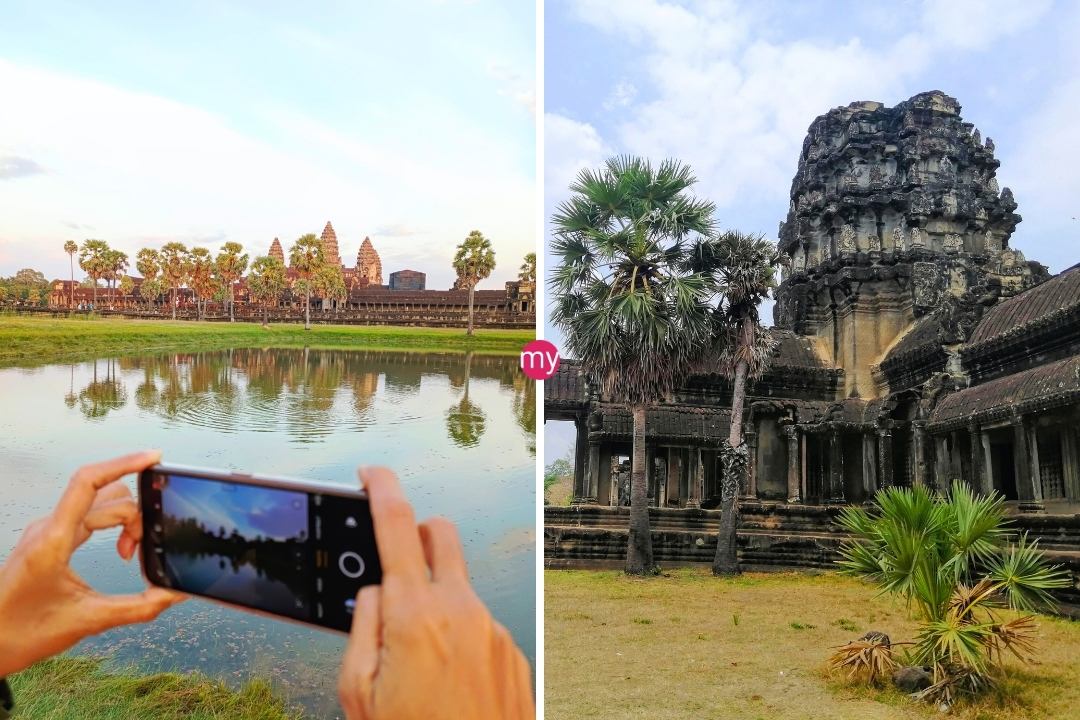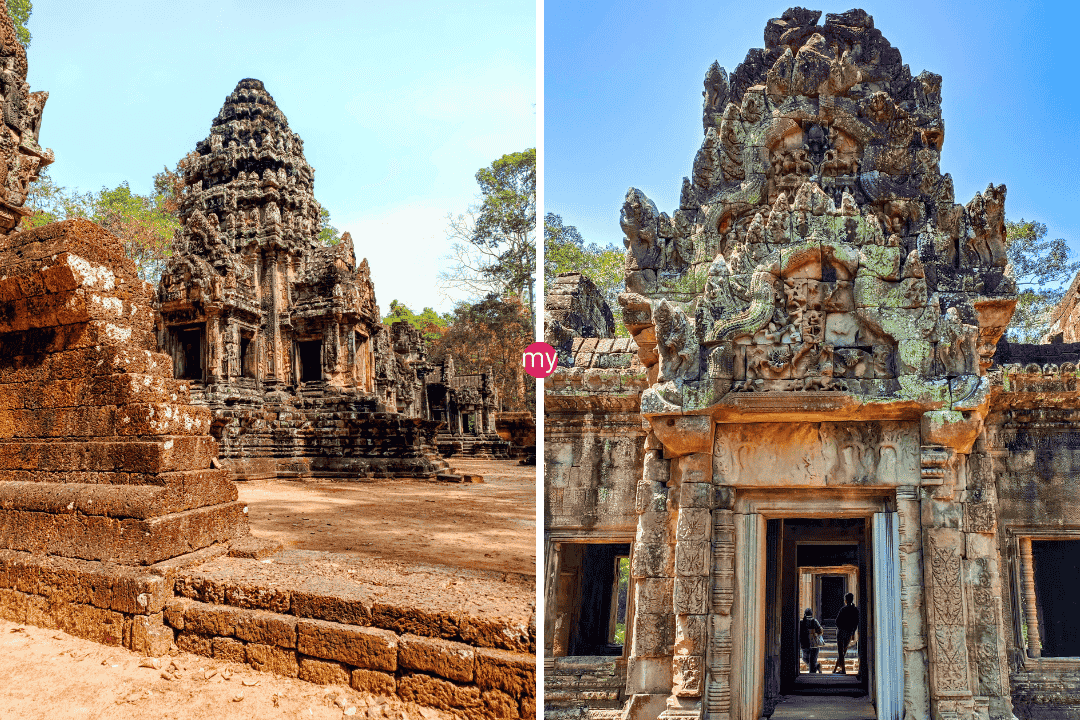Samlor Korko (Stirring Pot Soup) - The Cambodian Soup That’s Better Than Your Grandma’s Recipe!
Warm up with Samlor Korko—an incredible Cambodian soup that blends flavors into a rich, comforting bowl of deliciousness!
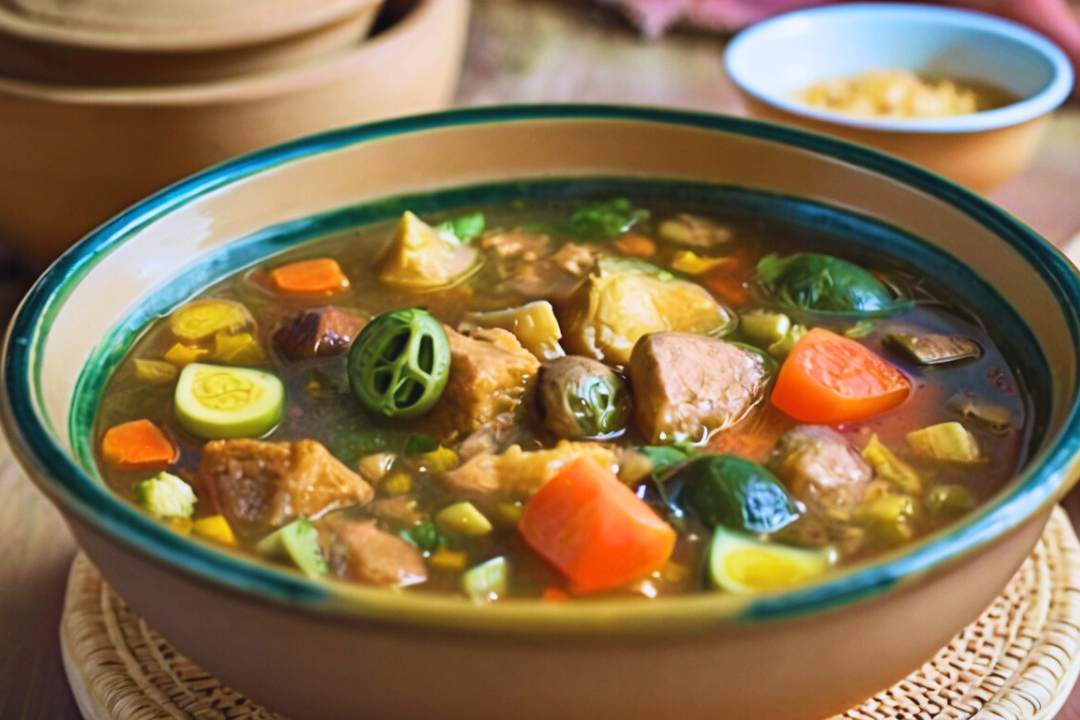
Recipe Index
- Fish Amok
- Lok Lak (Stir-fried Beef)
- Nom Banh Chok (Khmer Noodles)
- Samlor Korko (Stirring Pot Soup)
- Beef Saraman Curry
- Char Kroeung Sach Ko (Stir-fried Lemongrass Beef)
- Bai Sach Chrouk (Pork and Rice)
- Kuy Teav (Noodle Soup)
- Prahok Ktis (Pork and Coconut Dip)
- Num Ansom Chek (Banana Sticky Rice Cake)
- Lap Khmer (Lime-marinated Khmer Beef Salad)
- Char Kdav (Caramelized Palm Sugar Chicken)
- Maam Snoul (Fermented Fish)
- Nom Kong (Khmer Donuts)
- Twa Ko (Khmer Sausage)
Samlor Korko (សម្លកកូរ)
Overview
Samlor Korko, often translated as “Stirring Pot Soup” or “Mixed Soup,” is a complex and nutrient-rich traditional Khmer dish. This hearty soup combines a wide variety of vegetables, fish or meat, and prahok (fermented fish paste), resulting in a dish that truly represents the diversity of Cambodian cuisine.
Cultural Significance
Historical Context
Samlor Korko has deep roots in Cambodian history, with some food historians believing it dates back to the Angkor period. The dish reflects the abundance of Cambodia’s natural resources, combining fruits, vegetables, and proteins in a single, nourishing meal.
Symbolic Meaning
The diverse ingredients in Samlor Korko are said to symbolize the unity and harmony of Khmer culture, with each component contributing to the overall flavor without losing its individual character.
When It’s Eaten
While Samlor Korko can be enjoyed year-round, it’s particularly popular during the rainy season when a wide variety of fresh vegetables are available. In Siem Reap, it’s often served at family gatherings and during important ceremonies, making it a dish that tourists might encounter at local festivals or special events.
Key Information
- Preparation Time: 45 minutes
- Cooking Time: 1 hour 30 minutes
- Total Time: 2 hours 15 minutes
- Difficulty Level: Complex
- Servings: 6-8
Ingredients
For the soup base:
- 2 tbsp kroeung (Khmer spice paste)
- 1 tbsp prahok (fermented fish paste), mashed
- 2 tbsp fish sauce
- 1 tbsp palm sugar
- 8 cups water or chicken broth
Proteins:
- 300g firm white fish, cut into chunks
- 200g pork belly, sliced
- 100g small shrimp, peeled
Vegetables and fruits:
- 1 green papaya, peeled and sliced
- 2 green bananas, peeled and sliced
- 1 eggplant, cut into chunks
- 100g pumpkin, cubed
- 100g long beans, cut into 2-inch pieces
- 1 cup water spinach
- 1 cup bamboo shoots, sliced
- 2 green jackfruit, cut into bite-sized pieces
Aromatics:
- 2 kaffir lime leaves
- 2 tbsp rice, dry roasted and ground
Garnish:
- Fresh herbs (basil, saw leaf herb, rice paddy herb)
- Lime wedges
Notes on Ingredients
- Many of these ingredients can be found at the Old Market (Psar Chas) in Siem Reap.
- If certain fruits or vegetables are unavailable, it’s common to substitute with what’s in season.
Instructions
Preparing the soup base:
- In a large pot, heat 2 tablespoons of oil over medium heat. Add the kroeung and fry until fragrant, about 2-3 minutes.
- Add the prahok, fish sauce, and palm sugar. Stir to combine.
- Pour in the water or broth and bring to a boil.
Adding the ingredients:
- Once boiling, add the pork belly and simmer for 15 minutes.
- Add the green papaya, green bananas, pumpkin, and jackfruit. Simmer for 10 minutes.
- Add the fish, eggplant, and long beans. Cook for another 5 minutes.
- Add the shrimp, water spinach, and bamboo shoots. Cook for 3 more minutes.
Finishing the soup:
- Stir in the kaffir lime leaves and ground roasted rice.
- Simmer for an additional 5 minutes until all vegetables are tender but not mushy.
- Taste and adjust seasoning if necessary.
Serving:
- Ladle the soup into bowls, ensuring each serving has a variety of vegetables and proteins.
- Garnish with fresh herbs and serve with lime wedges on the side.
Serving Suggestions
- Traditionally served with a side of steamed rice.
- Diners can customize their bowl by adding extra herbs or a squeeze of lime to taste.
Beverage Pairings
- Non-alcoholic: Iced lemongrass tea or fresh coconut water.
- Alcoholic: A light Cambodian beer like Angkor or a crisp white wine.
Nutritional Information
- Calories: Approximately 350 per serving
- Protein: 25g
- Carbs: 40g
- Fats: 15g
- High in vitamins and minerals from the diverse array of vegetables and fruits
Variations
Regional Differences
- Siem Reap style: May include more freshwater fish and vegetables found near Tonle Sap Lake.
- Coastal regions: Might use more seafood in place of freshwater fish.
Seasonal Adaptations
- Ingredients often vary based on seasonal availability, making each batch unique.
Cultural Notes
- The name “Korko” means “to stir” in Khmer, referring to the constant stirring required to cook the diverse ingredients evenly.
- Samlor Korko is sometimes called “Queen of Soups” due to its complex flavors and numerous ingredients.
Chef’s Tips
- The key to a great Samlor Korko is balancing the flavors. Adjust the fish sauce, palm sugar, and lime to achieve the perfect blend of salty, sweet, and sour.
- Don’t overcook the vegetables; they should retain some texture to contrast with the tender meat and fish.
- If you can’t find prahok, try substituting with a mixture of fish sauce and anchovy paste.
Related Experiences
- “Farm-to-Table Cooking Class” in Siem Reap, where you can pick fresh ingredients and learn to make Samlor Korko.
- Guided tour of a local market to learn about the diverse ingredients used in Khmer cuisine.
- Visit to a nearby village to see how traditional ingredients like prahok are made.
Editor’s Note: Get ready to slurp your way through Cambodia! This month, we’re diving into the depths of Samlor Korko, a traditional Khmer soup that’s as vibrant as the land it comes from. Forget bland broths – this dish is a symphony of flavors, textures, and colors, with each ingredient playing its part in a truly unforgettable culinary experience. So grab your chopsticks, your curiosity, and your adventurous palate, and let’s explore the magic of Samlor Korko!
Final Key Takeaways:
- A Taste of Cambodia: Samlor Korko, or “Stirring Pot Soup,” is a true representation of Cambodian cuisine. This hearty soup blends a rainbow of vegetables, fish or meat, and the unique fermented fish paste called prahok, creating a complex, delicious symphony of flavors.
- A Dish Rich in History: This dish has been around for centuries, possibly dating back to the Angkor period. It’s a testament to Cambodia’s abundant natural resources, showcasing the country’s diverse ingredients in one delicious bowl.
- A Symbol of Unity: The variety of ingredients in Samlor Korko symbolize the harmony of Khmer culture, where each ingredient contributes to the overall flavor without overshadowing its own unique character, much like different cultures coming together.
- A Seasonal Delight: While you can enjoy Samlor Korko any time of year, it’s particularly popular during the rainy season when fresh vegetables abound.
- More Than Just a Soup: It’s often served at family gatherings and ceremonies, making it a dish that’s both comforting and celebratory. So, if you find yourself in Siem Reap, keep an eye out for this special dish.
- A Culinary Adventure: This soup is more than just food; it’s an experience. With its unique ingredients, complex flavors, and cultural significance, Samlor Korko invites you to taste Cambodia in every spoonful.
Featured
Explore more on My Siem Reap Tours
Koh Ker and Beng Mealea guided tour | Banteay Srei temple tour semi-private guided tour | Angkor Wat Sunrise shared tour | Koh Ker and Beng Mealea guided tour | Morning Siem Reap floating village tour | Afternoon Siem Reap floating village tour | Private Angkor Wat special tour | Kulen Waterfall small group guided Tour | Private Angkor Wat mix temples photo tour
